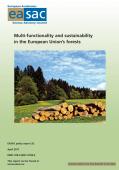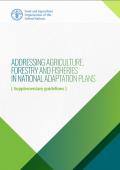The forest sector has great potential for contributing to inclusive green growth, as it is labor intensive, provides significant export opportunities, and, if managed sustainably, can help to mitigate climate change. Promoting harvested wood products (HWP) (such as wood for construction or furniture, or biomass for energy) is an important strategy for maximizing the economic, social, and environmental potential of the forest sector.
In alignment with existing international climate and development goals, this report, Harnessing the Potential of Private Sector: Engagement in productive forests for green growth, quantifies the benefits of promoting HWP production in Mexico, Colombia, Ethiopia, Mozambique, Vietnam, and Peru, and recommends steps that can be taken to improve the mitigation potential of HWPs.


The thematic assessment of pollinators, pollination and food production carried out under the auspices of the Intergovernmental Science-Policy Platform on Biodiversity and Ecosystem Services (IPBES) aims to assess animal pollination as a regulating ecosystem service underpinning food production in the context of its contribution to nature’s gifts to people and supporting a good quality of life.
